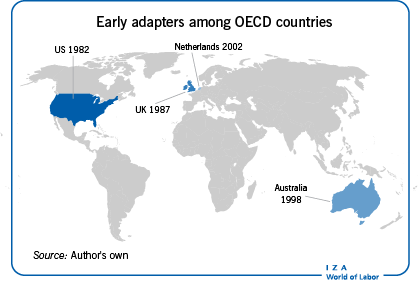Elevator pitch
Expenditures on job placement and related services make up a substantial share of many countries’ gross domestic products. Contracting out to private providers is often proposed as a cost-efficient alternative to the state provision of placement services. However, the responsible state agency has to be able and willing to design and monitor sufficiently complete contracts to ensure that the private contractors deliver the desired service quality. None of the empirical evidence indicates that contracting-out is necessarily more effective or more cost-efficient than public employment services.

Key findings
Pros
From a theoretical point of view, contracting out job placement services opens this market up to competition, which might decrease costs compared to the public delivery of such services.
If contractual arrangements and performance measurement can be sufficiently well-designed, contracting-out could improve job placement, at least for certain population groups.
Contracting-out allows the state to expand or reduce service capacity and to hire specialists for particular target groups while avoiding the long-term commitments that are often found in the public sector.
Cons
For the responsible state agency, ensuring the quality of private employment services puts great demands on contract design and monitoring systems.
It is by no means guaranteed that sufficiently well-designed contracts and adequate monitoring can be designed (or that the responsible state agency is even pursuing this goal).
Empirical studies for several countries indicate that – under given contract structures – the public provision of placement services performed equally well or even better than the private provision of such services.